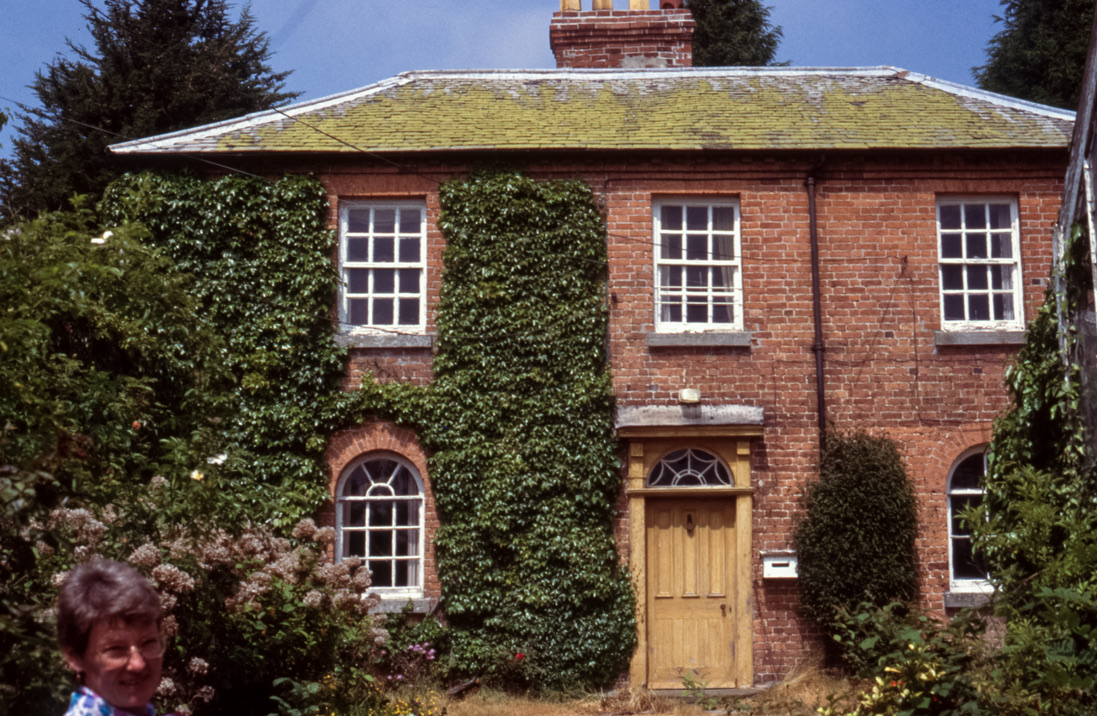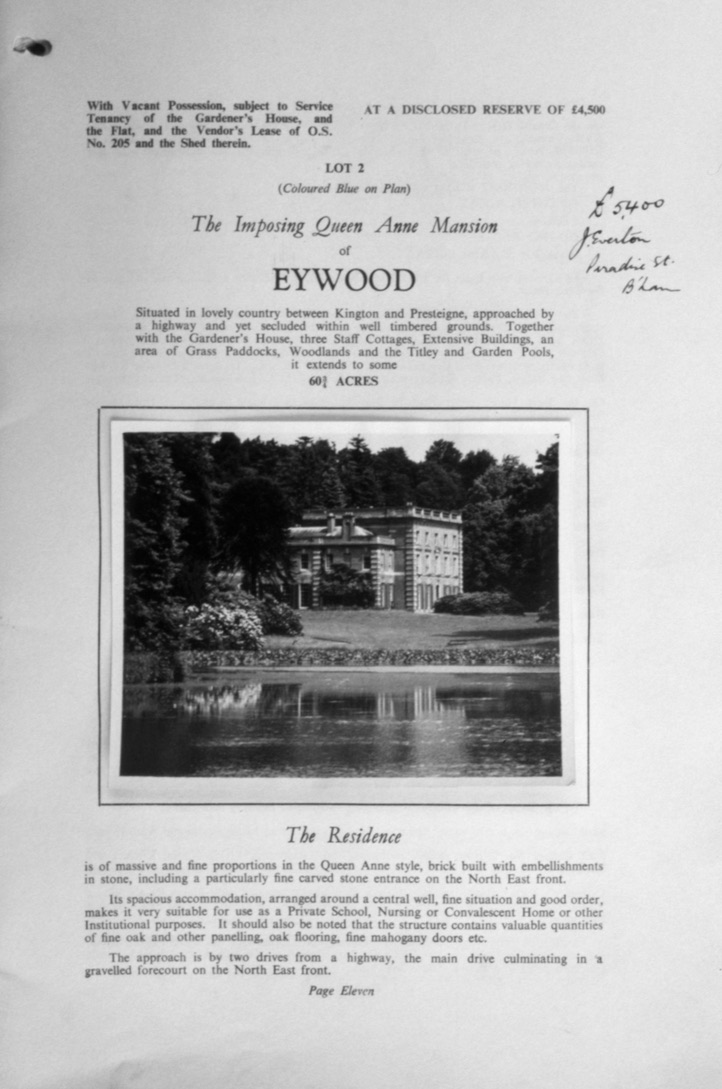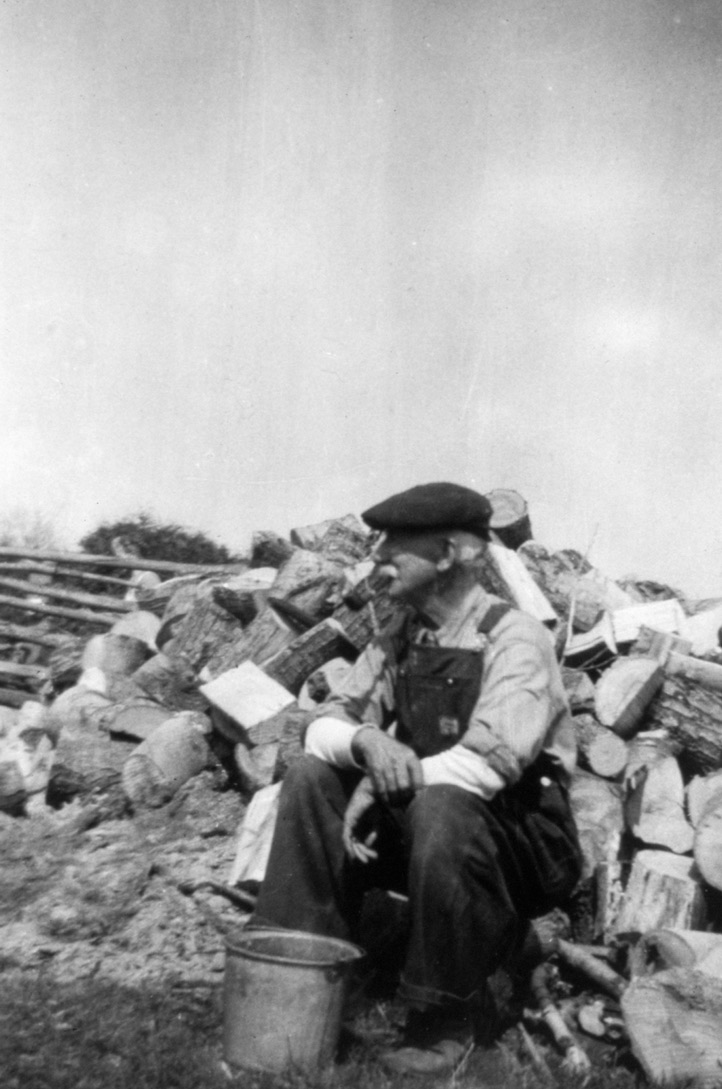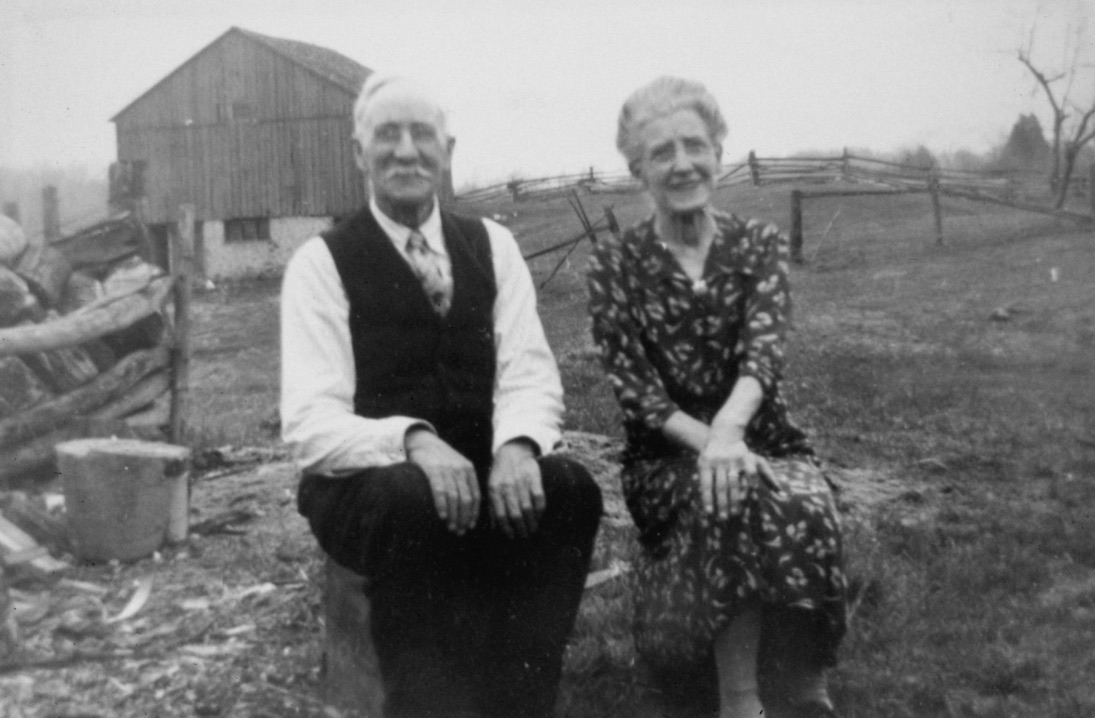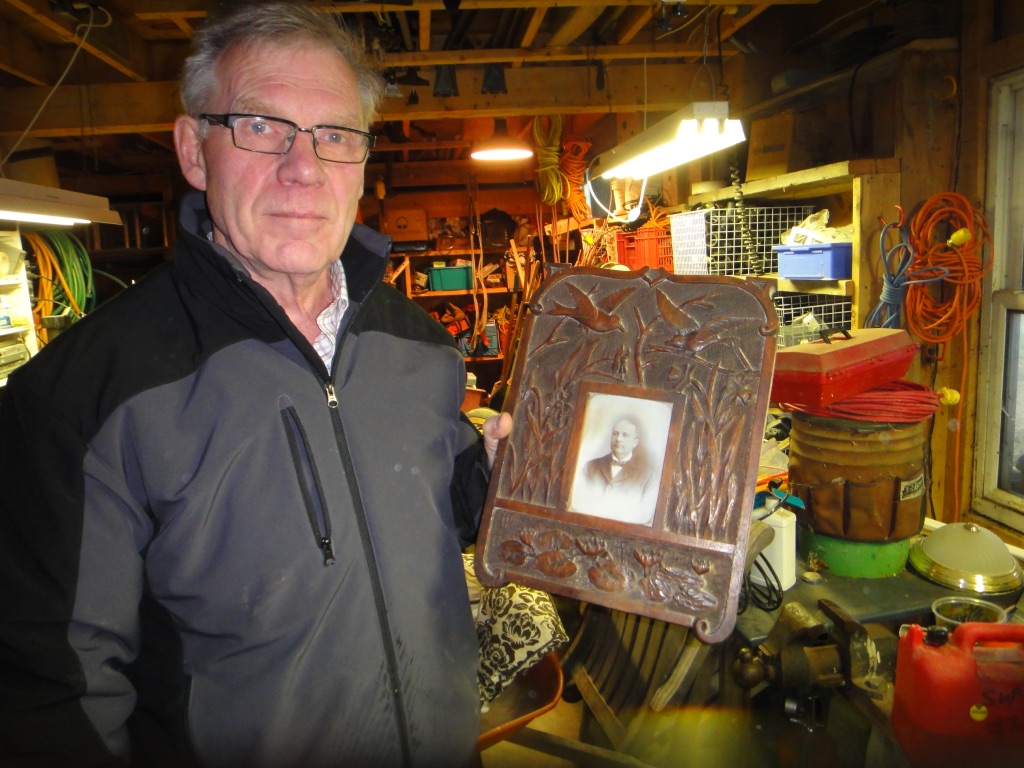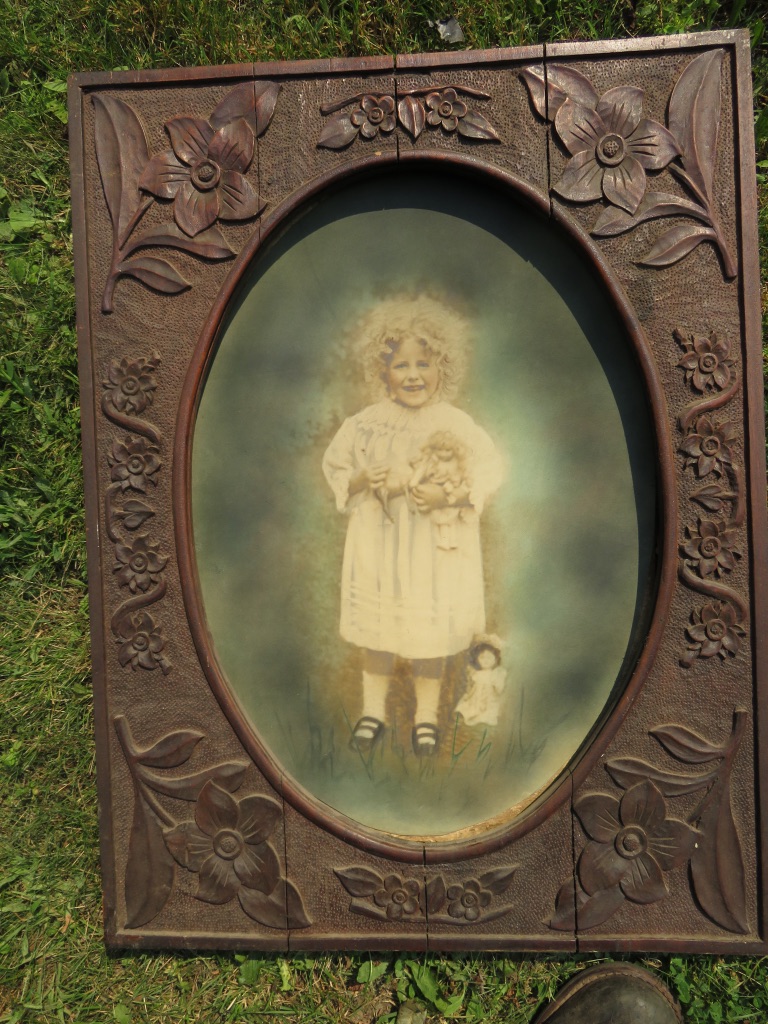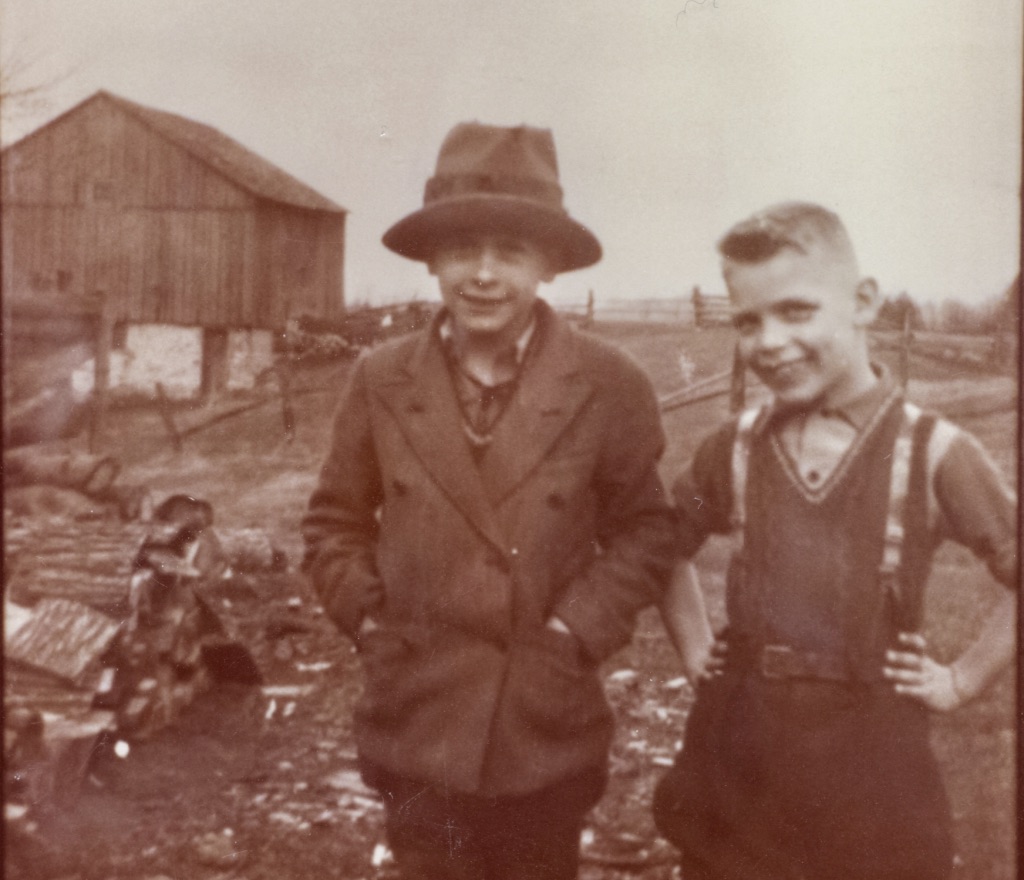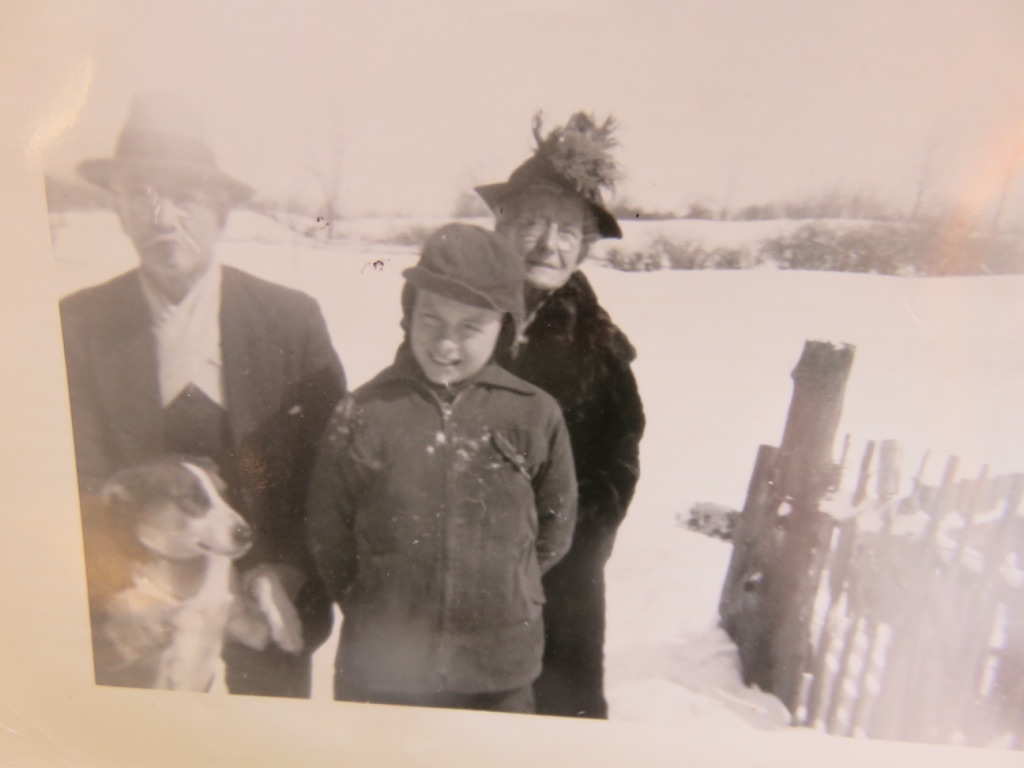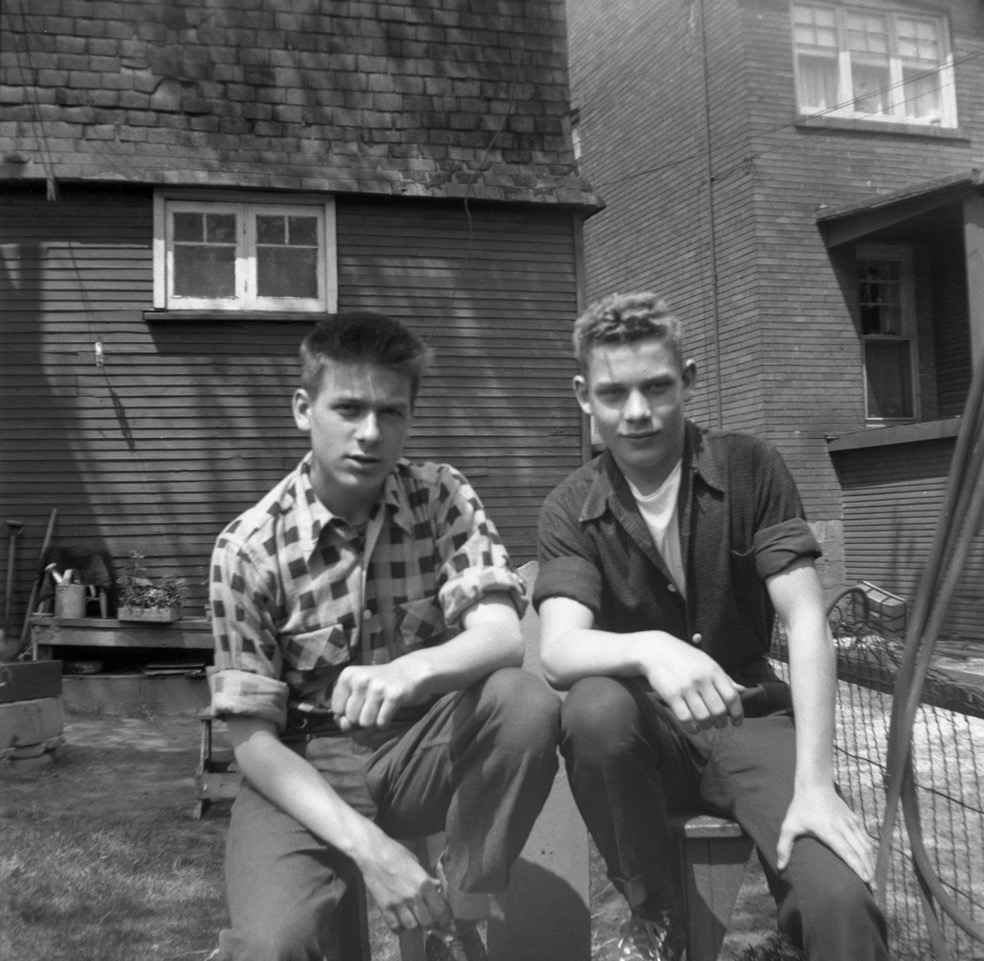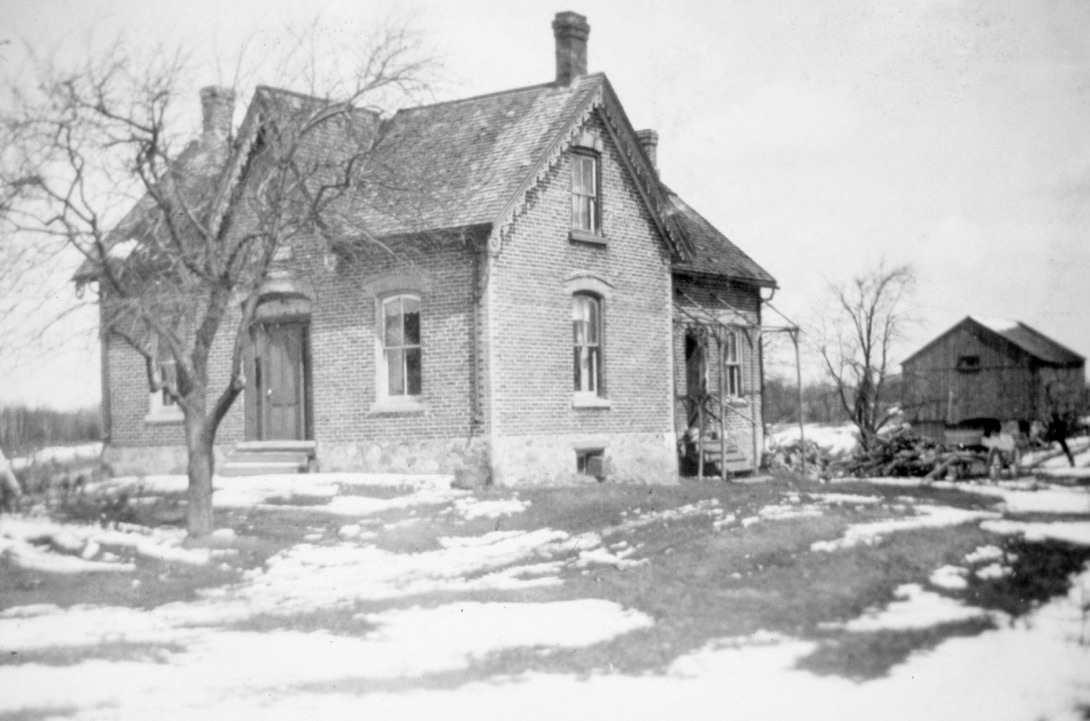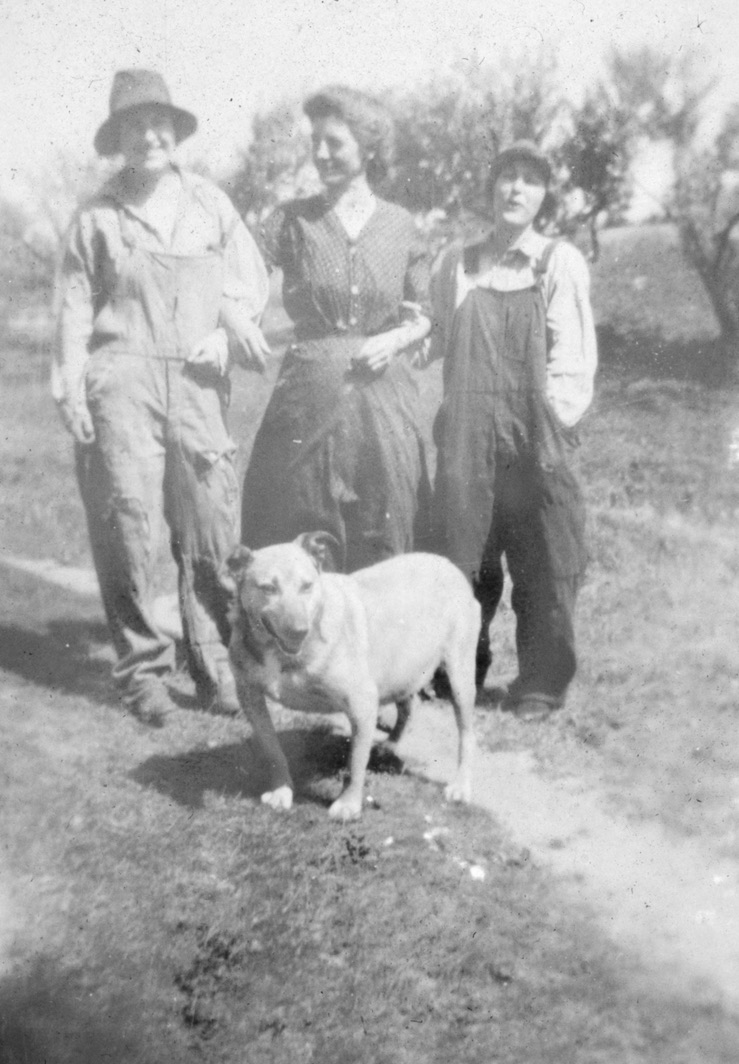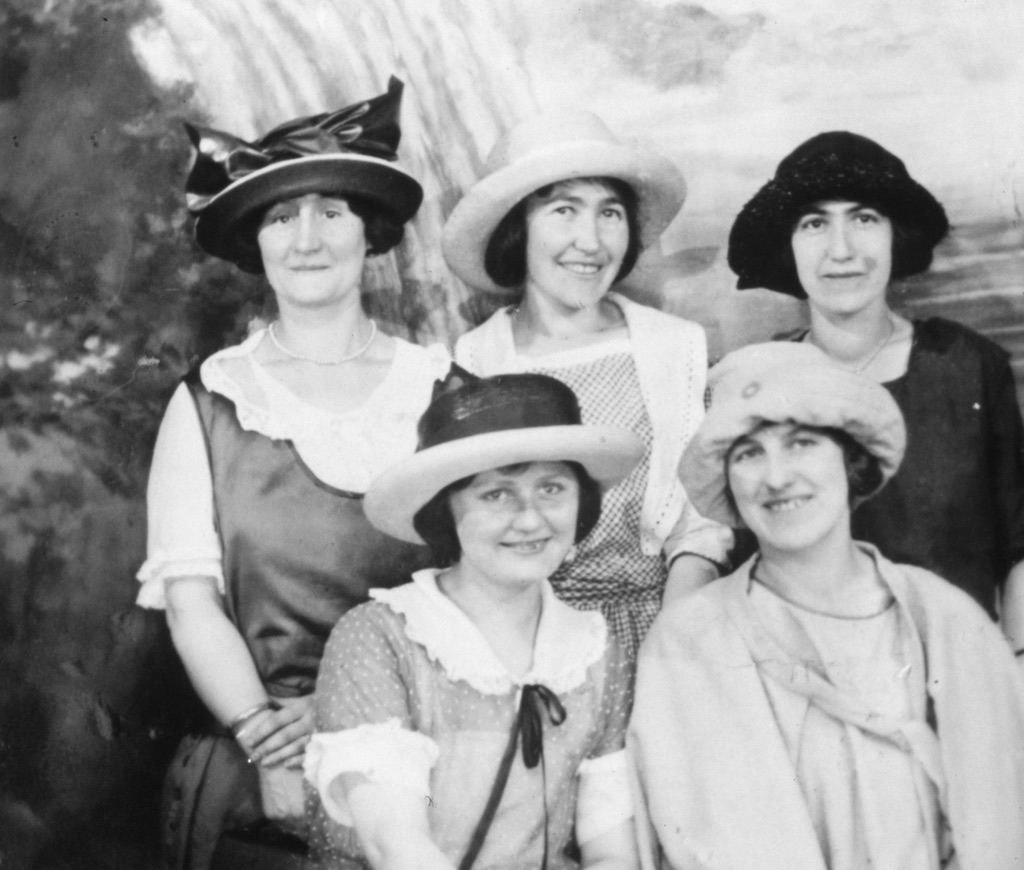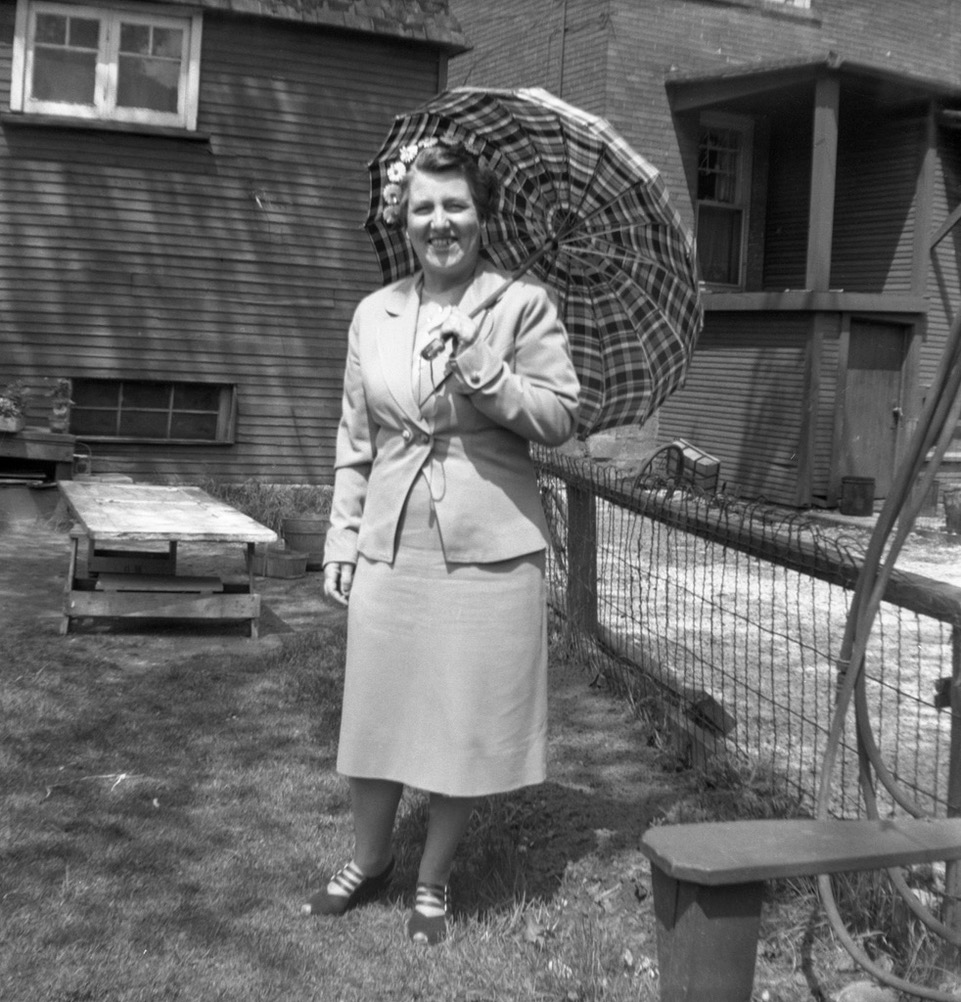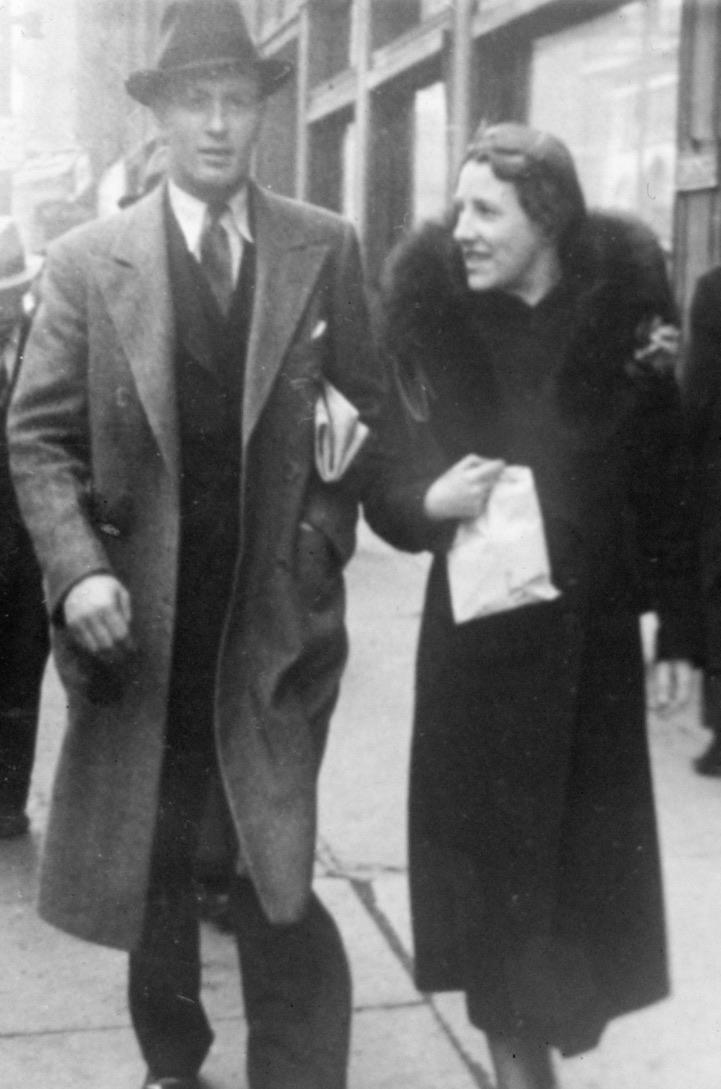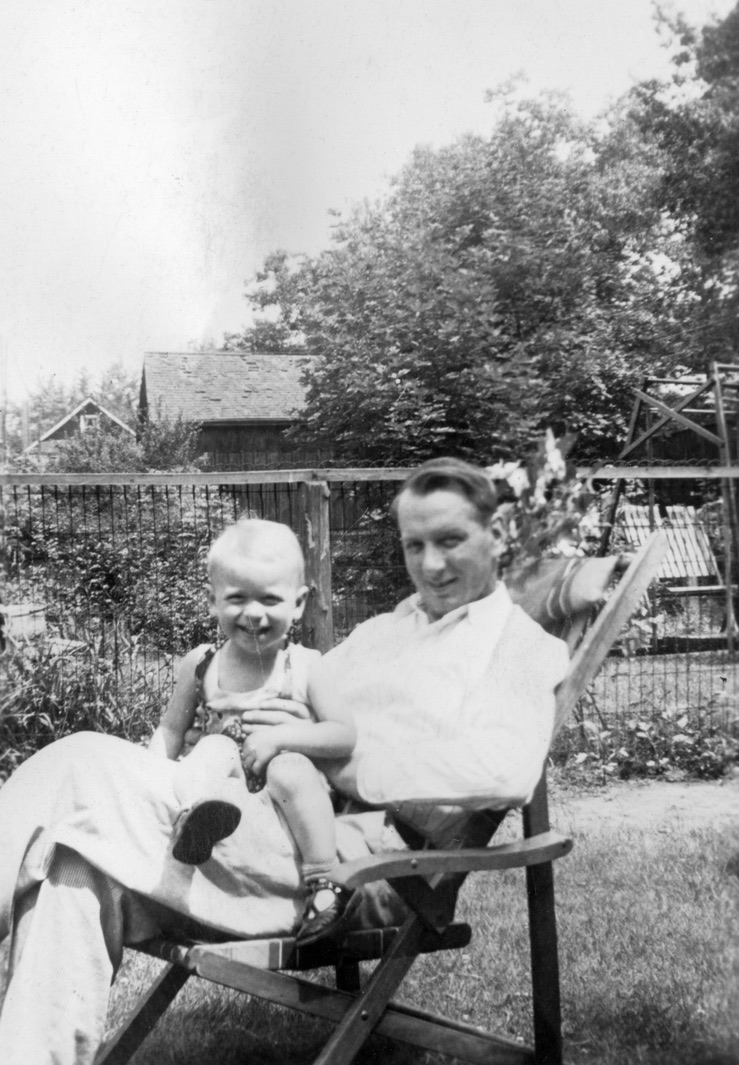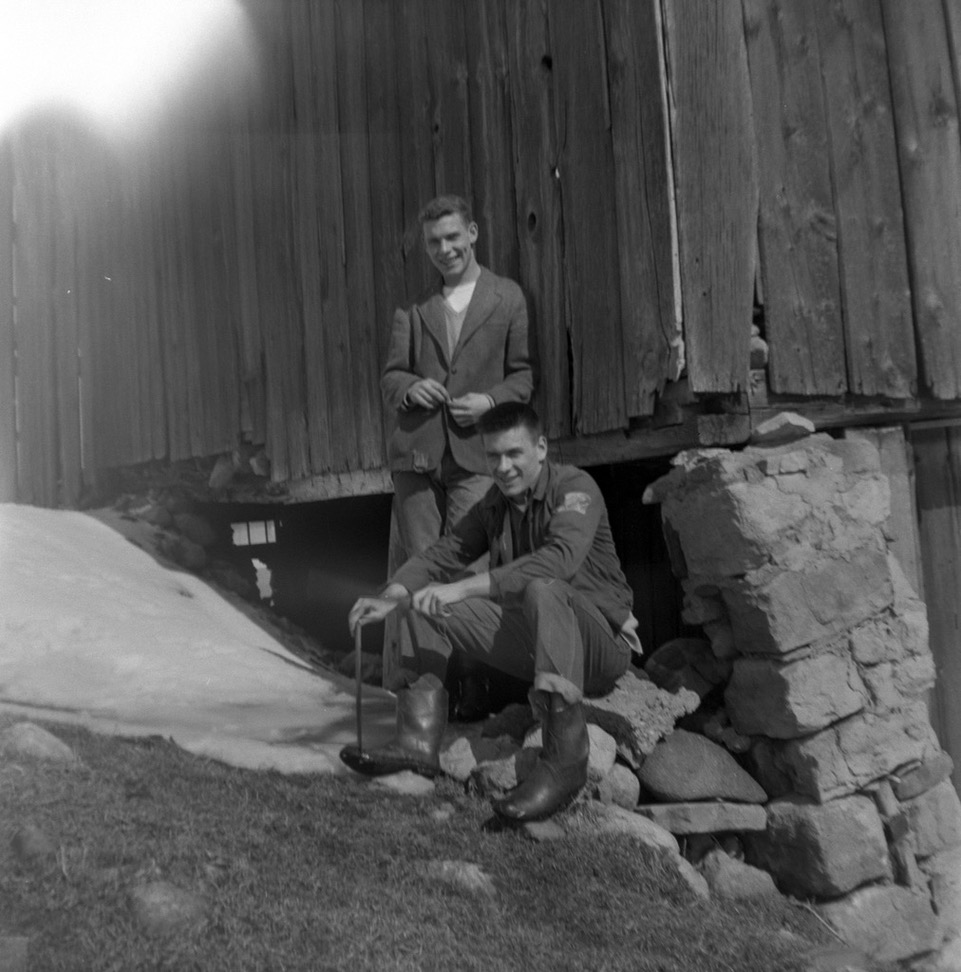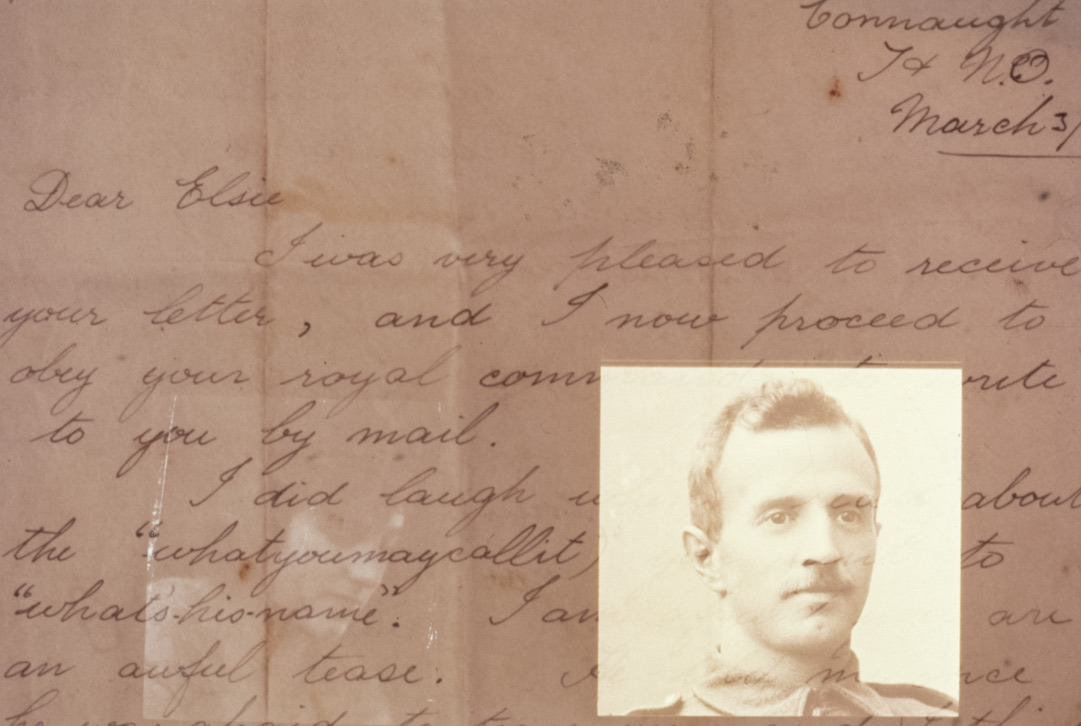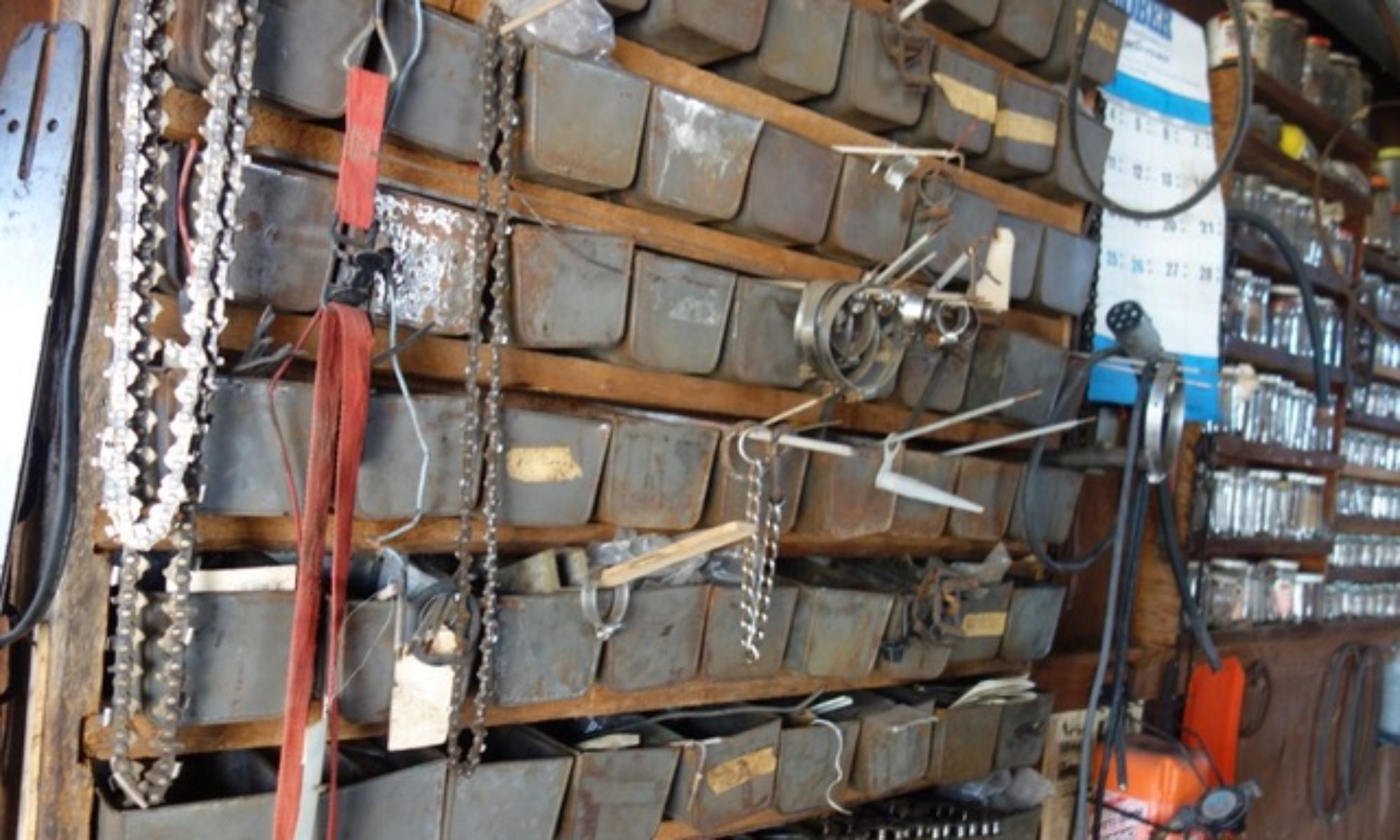TO READ. WHY CARE ABOUT THE FREEMAN FAMILY? WELL, THERE ARE POINTS IN THE
BROOCH. I WANTED THIS STORY TO BE PART OF MY EPISODES AS A RECORD. YOU DO NOT
NEED TO READ IT. SOME WILL BE OFFENDED. HOW COULD YOU SAY THAT, ALAN?
EPISODE 272 THE GOLD BROOCH
alan skeoch
March 2021
I found the golden brooch in a box of little things that Grandma had placed
in the back kitchen pantry at the farm. Looked like gold. That is probably why I
asked mom “Is this valuable?”
“Where did you find it? I thought it was lost long ago.”
“It was in a little box with string, buttons, newspaper clippings…in the pantry”
“Mother must have saved it…she saved bits and pieces of just about everything.”
“Is it gold?”
“No. Dad made it from the scrap brass filings from artillery shells in World War I.
He had a job in Toronto at a munitions plant. Made the brooch for me when I was
12 or 13. I thought it had been lost long ago.”
THE GOLDEN BROOCH
Sometimes the tiniest of things show the way back into deepest of times. Like a mammoth tooth
leads the mind back to a time when they wandered freely across an often ice clad Northern Canada.
And there are the fossils in Port Credit shale that lead the mind back to a time when much of North America
was covered by a great shallow sea where aquatic life thrived. In short, from small things greater things are recalled…or discovered. So it is with
the Gold Brooch.
It is made of brass, not gold. It is worthless, I suppose, but it triggered an avalanche of family history.
Why should the Freeman family history be of even remove interest to readers of these episodes?
Interest is captured when unpleasant things happen. That’s just the way we are. Good times,
financial success, awards, glory…attract minimal interest. If I titled this story “Why my grandfather
was a great man,” only a few readers would give a sweet damn. If, however, I titled this episode
“What my grandfather never told me,” the interest level would increase. Better still, “The truth,
the truth, you cannot handle the truth, Alan” That would bring readers in flocks.
Edward Freeman was born on May 3, 1871. He was 84 years old when I really got to know him
in 1955. Even then i never knew him well. We liked each other. That much I do know.
Edward Freeman, my grandfather never spoke much about the past. Even his best years… those 6 year as head
gardener of the Eywood Estate in Herefordshire from 1899 to 1905 were hardly mentioned.
It was mom that told me
about the time Lord Byron visited Eywood and got sexually involved the lady of the estate while her husband
went for a stroll around and around the little lake. Was this real or imagined? Horny enough to be true.
Documented as true. When the estate was auctioned in 1954, the Lord Byron incident was printed along
with the furniture, buildings, land parcels. Weird.
Edward Freeman kept some things to himself. For instance he
never said how much he despised his father John Freeman.
How do I know that? By chance. Somehow a letter he sent from Canada to his brothers and sister back
in Lyonshall, Herefordshire came back return mail and was laced in the farm pantry along with the gold
brooch. He hated his father because John Freeman mistreated his mother.
There were
ten children in the Freeman family which must have placed heavy responsibilities on the
parents who for a few years tried to farm just outside the village. Not with any success
it seems since the family moved into a village house that has now become The Royal George,
a pub. John Freeman became an alcoholic. No record of physical abuse of his wife, but something
triggered granddad’s hatred. At some point John Freeman tried to kill himself by cutting how own
throat. MY Mom (Elsie Freeman) mentioned that several times…the attempted suicide. I have no
idea why. Perhaps self loathing. How is it possible to clothe, feed and raise ten children with
very little income. Enough to drive a person mad. Granddad persuaded his brothers Chris and Cliff
to come to Canada along with his sister Anna. Anything to get them away from his father.
When granddad was appointed head gardener at the Eywood Estate he grew a beard to
make him look older. A head gardener was a position of high regard in country estate homes
all over England. Huge estates. Eywood had 1500 acres. Being head gardener was near the pinnacle of the ‘inservice’ hierarchy . And granddad knew it
but there was also a malaise that he felt although he rarely expressed that to me except for
the one comment about tipping his hat. (see Capability Brown…garden designs)
![Detail from Lancelot Capability Brown portrait ©NPG Detail from Lancelot Capability Brown portrait ©NPG]()
blog.english-heritage.org.uk/wp-content/uploads/2016/12/780-header-cb1-440×169.jpg 440w,
blog.english-heritage.org.uk/wp-content/uploads/2016/12/780-header-cb1-768×295.jpg 768w” sizes=”(max-width: 780px) 100vw, 780px” style=”border: 0px; margin: 23.390625px auto 0px; max-width: 100%; display: block;” apple-inline=”yes” id=”6E0A6F9B-D542-4D35-8A49-E7D811D63C98″ src=”http://alanskeoch.ca/wp-content/uploads/2021/03/780-header-cb1.jpg”>
If you were anyone in Georgian society, your garden would have been designed by Lancelot ‘Capability’ Brown. Wealthy lords and ladies, and even the royals, commissioned Brown to landscape their vast estates, which revealed much about their status and style. Moving from formal to functional with sweeping lawns and key focal features, Brown revolutionised gardening in England.
This year England celebrated 300 years since Brown’s birth. You can read more about his life here. But first, we caught up with Landscape Adviser Emily Parker to explore who he was and why he became the go-to for English landscaping.
WHERE DID THE NAME ‘CAPABILITY’ COME FROM?
Nobody knows for sure, but it’s said that Brown used to turn up at country houses and say: ‘this place has great capabilities for improvement’ – and that’s where he got his nickname from. I think you could safely say that he changed the whole nature of English gardening from its more formal roots to something that imitated nature. That’s what we can see from Capability Brown today, particularly at Audley End House and Gardens.
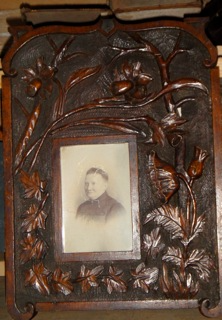
My grandfather was trained as a carpenter, a skill he never lost as seen in the hand carved
picture frames that hung in our Fifth Line, Erin Township, Wellington County farm house.
He gave up carpentry, however, in favour of gardening. Worked as a gardener at Windsor
Castle and then around 1899 got a ‘position’ as head gardener at the Eywood Estate, a 1500
acre country estate near the tiny village of Titley in Herefordshire.
The head gardeners’ cottage at Eywood where mom was born. The largest house my grandparents ever lived in. Note Marjorie in
bottom right corner. When Eywood Estate was sold, only one building was destroyed…the grand estate mansion. All else remains
the same as it was to tis day. The Eywood gardens, two acres enclosed by high brick walls were often discussed by my grandparents
who made their farm on the Fifth line a kind of mini-Eywood with high cedars enclosing the large garden.
Mom was born in the
head gardener’s cottage on the estate. The hand carved picture frames that hung on our
farm house walls all had photographs of working people on the Eywood Estate. Not grand people.
Ordinary people such as the cook, the chauffeur, the assistant gardeners, the horse, the dog…
and the grandest frames held picture of mom, Elsie Freeman, and her older brother, Frank Freeman.
Photographs taken by granddad using a pin hole camera. Unusual pictures.
The Eywood mansion sold for around $12,000 in 1954. There was not much left inside
once the wood panels, the floorboards, the ornaments, were sold. So the place was knocked
down. I believe blasted was a term I heard but that may be imaginary. I went there in 1960
while working in Southern Ireland. Sad to see but country homes all over England were
being pulled down as few people could afford to maintain them.
The only negative comment I ever heard my grandfather utter was so inconsequential that
I never understood what he meant until long after he was dead and gone. He liked Eywood
but “disliked having to tip my hat to Mr. Gwyer whenever we met”. Now what the hell did
that mean? It meant noting to me until years afterward when on a Boy Scout camping trip
with a very arrogant, know-it-all English boy scout called me ‘common’ meaning I was several
steps below him in the class pyramid. He hated me for some reason and the word ‘common’
was about the worst thing he could say. Tipping the hat was a signal of deference. ‘You are
better born than me and I know it.’ Tip the hat. Some call that showing respect. In Canada
PICthe hat tipping means nothing much, just
a friendly gesture but the habit of tipping the hat comes from a darker time. That comment
was never dwelt upon in detail by granddad. I do not remember him tipping his hat to anyone.
No great scene…no comment. But an undercurrent of embarrassment whenever deference
was required.
Strange really. Of all my relatives, and there were and still are many, I spent most of my
adolescent years with my Freeman grandparents. on the 25 acre farm the we still own.
Yet all I knew about them was from fragments that meant nothing to me at the time.
I wish that were not so. I wish we had spent an hour or two together with granddad speaking
and me listening but that never happened. He was not stand offish…remote kind of man.
He liked me as he did my brother Eric. When I stole one of his cherished chisels and was caught
then hid in the hay field granddad was amused. When I had bad pin worms and needed an enema
granddad and mom levered me out from under the bed to get the dreaded enema in my ass. Granddad
was amused. Close. But there were things he never dwelt on long. He was a positive person.
PICTURE: When winter came there better be lots of firewood ready. Now that use as fuel is gone.
And when there is only one cow in the barn, a small pail will be enough for the hand milking
(Granddad circa 1955)
WAS EMIGRATION TO CANADA A TERRIBLE MISTAKE?
Coming to Canada in 1905 may have been a terrible mistake. A mistake made by hundreds…thousands
of other economic migrants looking for a better life when the 20th century began.. Fooled by slick advertising
to think Canada was a golden land of
milk and honey. A land free from the strangle hold of class. A land where a working class family could actually
own land…be given land virtually. The advertisements sent from Canada were Partly true and partly false as with most advertising.
Edward Freeman and Louisa (Bufton) Freeman, about 1955. The barn was still standing then but empty. Look at their faces.
Gentle people with soft smiles. But tough as railway spikes. They could get by when the going got rough. They had each other.
About here in the story is where my grandmother enters the picture. Louisa Bufton’s mother got knocked
up by a man known as Dr. Price. A medical doctor. He impregnated her but did nothing else. No help. No
responsibility. No one seems to have cared much about Louisa. But she lived, therefore some care
must have been provided. Otherwise she could have died like some
other children born out of wedlock. Or placed in the “home” that was not a home at all. These were
Not good times for grandma…childhood years.
At some point Louisa was living on the streets in Birmingham…while her
mother hunted perhaps for another man. Once a man showed interest then the presence of a reminder of
illegitimacy was best swept under the rug. Little Louisa was fast becoming a street waif. There
were thousands of such children in working class England. Children eventually described as Home
Children which seems a contradiction in terms until the term ‘home’ is defined as an orphanage.
In other words no real home. Victorian and Edwardian England had a vast underclass.
“Aunt” Webb entered the story …when she heard Louisa Bufton was a street waif. Just exactly who
Aunt Webb really was has never been clear to me. She may have been Louisa’s grandmother who knew
the whole sordid affair of Dr. Price taking liberties with a female patient then refusing responsibility. That is
an old story…old and true. “Aunt Webb rescued mother from the streets of Birmingham along with her
cousin Richard, brought them to the Edwards farm in Herefordshire where they were very happy.”
Then Something went wrong. Louisa left the Edwards farm. Bit of a cloud covers that event. There had
never been a formal adoption so grandma was cut loose it seems. By then grandma and grandpa were
newly married. A long and good marriage. Even though the times
were tough. Marbled fat on the meat was desirable… not removed as waste.
Hand carved picture frame with friend from Eywood featured. Granddad carved
these frames on winter days and nights. Heirlooms today.
MUSICAL
Etched forever in my memory is the music on winer nights in Canada on the Fifth line farm.
They were very musical and both sang and played instruments…granddad the violin
that he could make dance to the ‘Devils Dream’ and grandmother accompanied on the pump organ
with Laddie their dog howling in tune while the winter winds scoured the landscape and most
of the farm house. We all huddled in the kitchen where wood smoke smelling of maple syrup clouded the room.
The only livable room in winter. All around the
room were those hand framed pictures of Eywood. No comment from granddad that I would call nostalgic.
Canada had not turned out to be a place of milk and honey but there was never a desire to go back
to that grand estate to be ‘in service’ like the employees of Downton Abbey.
Little wonder I loved the works of Dickens, Hardy and Steinbeck. Poverty brought out the best in people
was the message. Untrue of course. Happy endings? Never happened of course. Yet..yet..yet…grandma and
grandpa never seemed downtrodden. Life always seemed good on he farm.
Regrets? I have a few. Granddad wondered if I was musical
‘because Alan you have long fingers’. He only said that
to me once. His comment startled me. I had no time for music lessons nor inclination at the
time. Today I wish I could hammer a piano like Jerry Lee Lewis and sing like Gordon Lightfoot.
Another fragment from grandpa that I never understood until it was too late.
Eric and I about 1955 when we were in high school and spent regular week ends at the Freeman farm
where we always felt welcome. Unannounced visits encouraged. We knew we were wanted.
THE FARM
The greetings by the Ansons when the Freemans arrived in Canada
In 1905 was a little frosty. Perhaps because the Freeman family overstayed the welcome while grandad went west
to Manitoba to see about homesteading. Louisa’s mother had married and her family was stressed when
the Freeman family arrived. An illegitimate child …whispered maybe. Or Perhaps there was a closer bond that later soured.
When Granddad returned and said he found land on the prairies, grandma revolted. “No schools, no doctors….we
are not going Edward.”
So Granddad bought
a small 12 acre market gardening farm where highway 427 and Burnhamthorpe Road cross.
Growing and marketing vegetables was really tough. Became impossible so granddad found
a job as a carpenter on the Temiskaming and Northern Ontario railroad. They lived in a decrepit
log cabin at Krugerdorf, a German immigrant community near Englehart which is now just
a sign beside the railway line…nothing there anymore except for a black bear on my visit a few years ago.
These were the years of the great fires in Northern Ontario. Seemed the whole of the north
was on fire. “I remember riding a flat car through huge fires burning on both sides of the tracks”,
he said once while at the same time commenting that “Lou managed to save the pump organ
when our house in Krugerdorf caught fire and burned to the ground.” They got out with only
a few family pictures and the organ.
The Edward Freeman farm as it appeared in 1914. Brick farm houses like this were common as were hand framed
bank barns. Not so today.
Mom and Grandma and Frank did the farming while granddad made explosives in Toronto
during the war years 1914 to 1918. Mom has the baggy clothes on the left. Grandma in centre.
Friend on the right.
Punch the dog in the foreground.
September 1914. War industries starting up centred in Toronto. Granddad had
enough money to buy the 25 acre farm on Fifth Line, Erin Township, Wellington County.
A poor farm. Swamps, gravel soil, boulders. Barely an acre of sandy loam.
But enough for grandma and her kids
to run while granddad was making artillery shells in Toronto.
That’s where the Gold Brooch* came into family history. Might be a good
place to stop.
TO BE CONTINUED
POST SCRIPTS BELOW
Mom broke away from the farm in 1920 as did thousands of other young women. The tool of escape Was the electric
sewing machine. Here is mom bottom right with four other seamstresses working in Guelph in1920. There is an aura of independence
about them, is there not?
Our mother…Elsie Freeman. Dad always said she was the only woman he knew who was named after a cow. Borden’s
dairy in Toronto featured Elsie the cow. Mom was a feminist but never said so. She ran our house…saved money to help
Grandma and Grandpa on their little farm. She made us feel rich. We never knew we were poor. She supported us all
because she was a whiz with a sewing machine. Dad was a great guy. I have told many stories about him. We loved him as
well but never expected support from him. He had racetracks full of horses to support. Mom was a leader that could accept
human failings. Dad’s gambling
was just something she had to accept. She could love a person without the baggage of a judgmental mind. Lots of people
live with troubles.
Shortly before she died, I asked her to tell us her story. I think both of
our stories are in harmony.
alan skeoch
March 2021
Mom and dad on Yonge Street , Toronto in the 1930’s. Dad was considered unmarriageable
by many. Mom proved that to be false judgment.
This is our dad…Arnold ‘Red’ Skeoch. He has not been featured in the story because it is
a story about the Freeman family. Dad was a great person to have as a father…sort of a
playmate really.
By 1955 the barn was doomed. Canadian winters were to blame not neglect. A barn with a stream running through it
could withstand freezing and melting for only about 80 years.
Mom was only a teen age kid in Krugerdorf when she met Harry Horsman. So this was hardly a romance. But Harry wrote to
her from the trenches of Normandy until he was killed in the Somme offensive of 1916. She kept his letters and I made a film
about him in the 1970’s. That war left many young women single for the rest of their lives. 60,000 young Canadian died. Suppose Harry
had lived. Would I be around?
END EPISODE 271
alan skeoch
March 2021
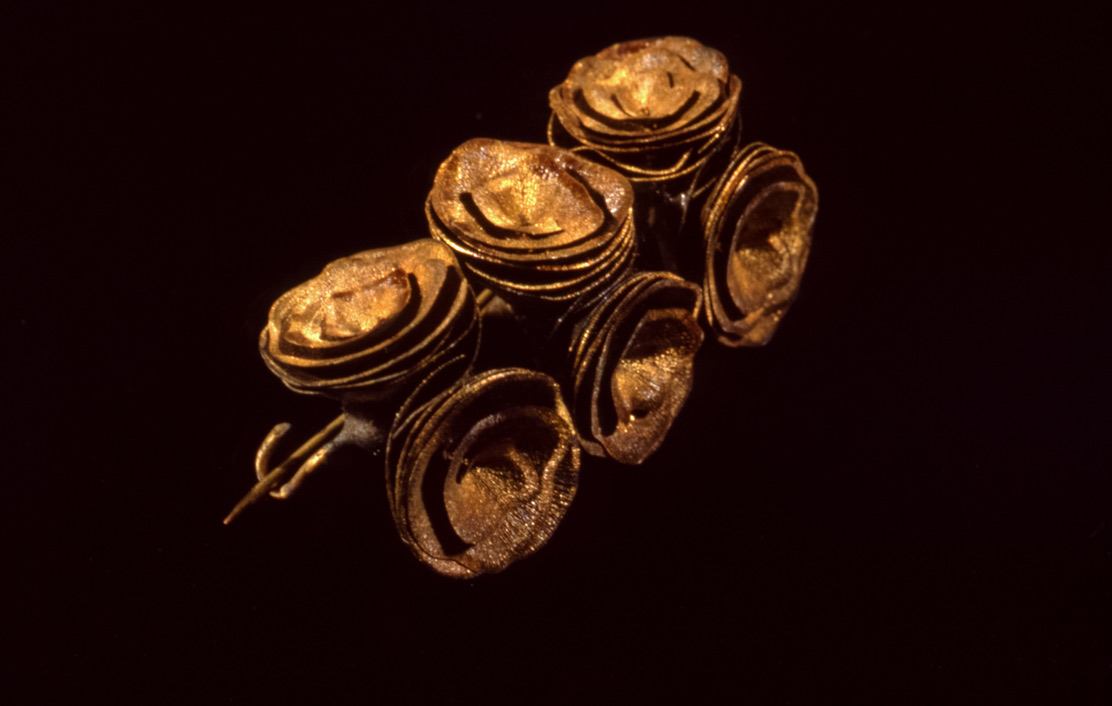
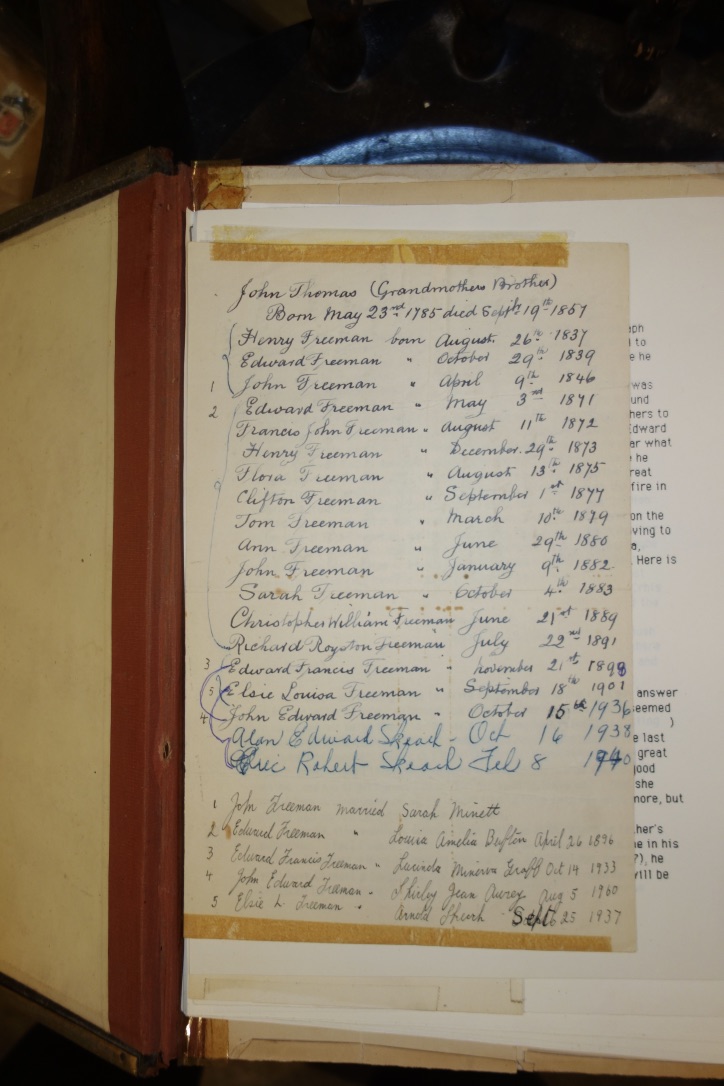
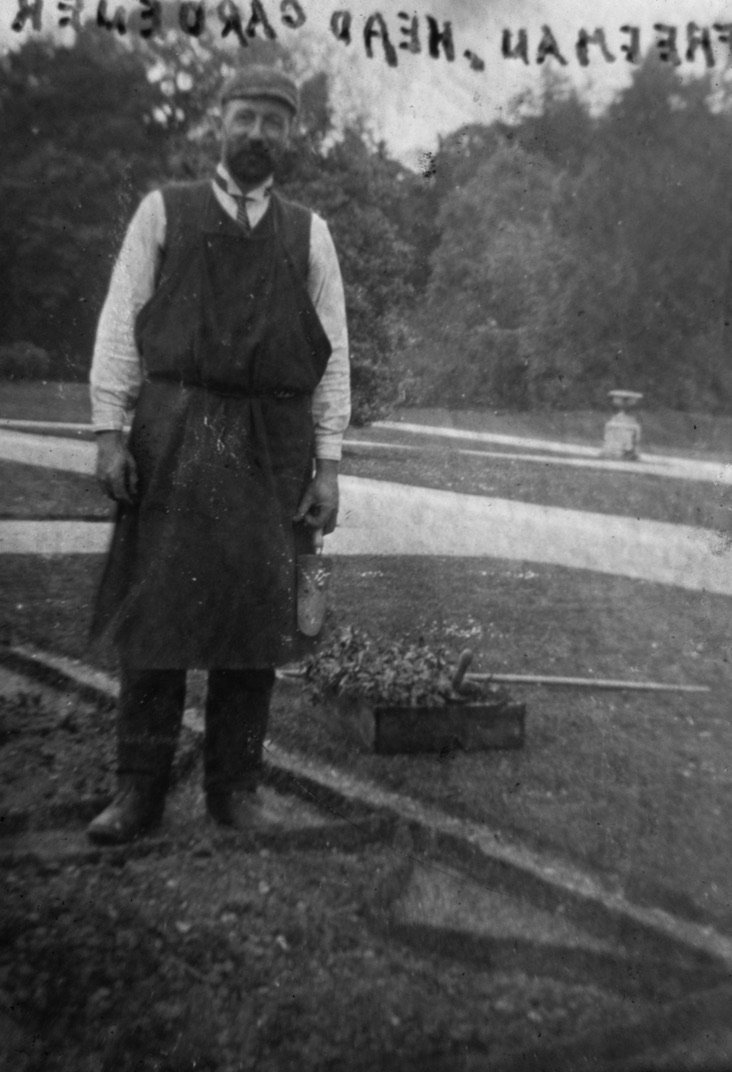
 blog.english-heritage.org.uk/wp-content/uploads/2016/12/780-header-cb1-440×169.jpg 440w, blog.english-heritage.org.uk/wp-content/uploads/2016/12/780-header-cb1-768×295.jpg 768w” sizes=”(max-width: 780px) 100vw, 780px” style=”border: 0px; margin: 23.390625px auto 0px; max-width: 100%; display: block;” apple-inline=”yes” id=”6E0A6F9B-D542-4D35-8A49-E7D811D63C98″ src=”http://alanskeoch.ca/wp-content/uploads/2021/03/780-header-cb1.jpg”>
blog.english-heritage.org.uk/wp-content/uploads/2016/12/780-header-cb1-440×169.jpg 440w, blog.english-heritage.org.uk/wp-content/uploads/2016/12/780-header-cb1-768×295.jpg 768w” sizes=”(max-width: 780px) 100vw, 780px” style=”border: 0px; margin: 23.390625px auto 0px; max-width: 100%; display: block;” apple-inline=”yes” id=”6E0A6F9B-D542-4D35-8A49-E7D811D63C98″ src=”http://alanskeoch.ca/wp-content/uploads/2021/03/780-header-cb1.jpg”>
